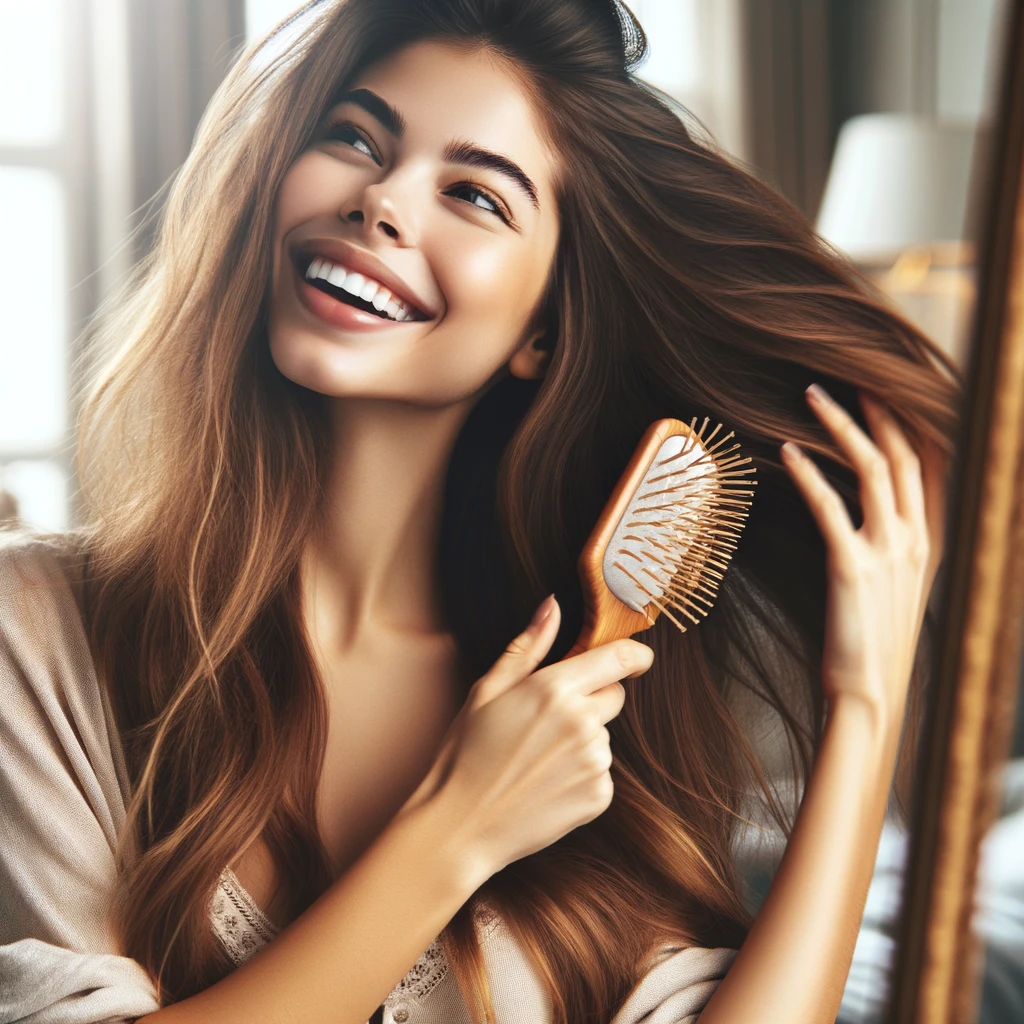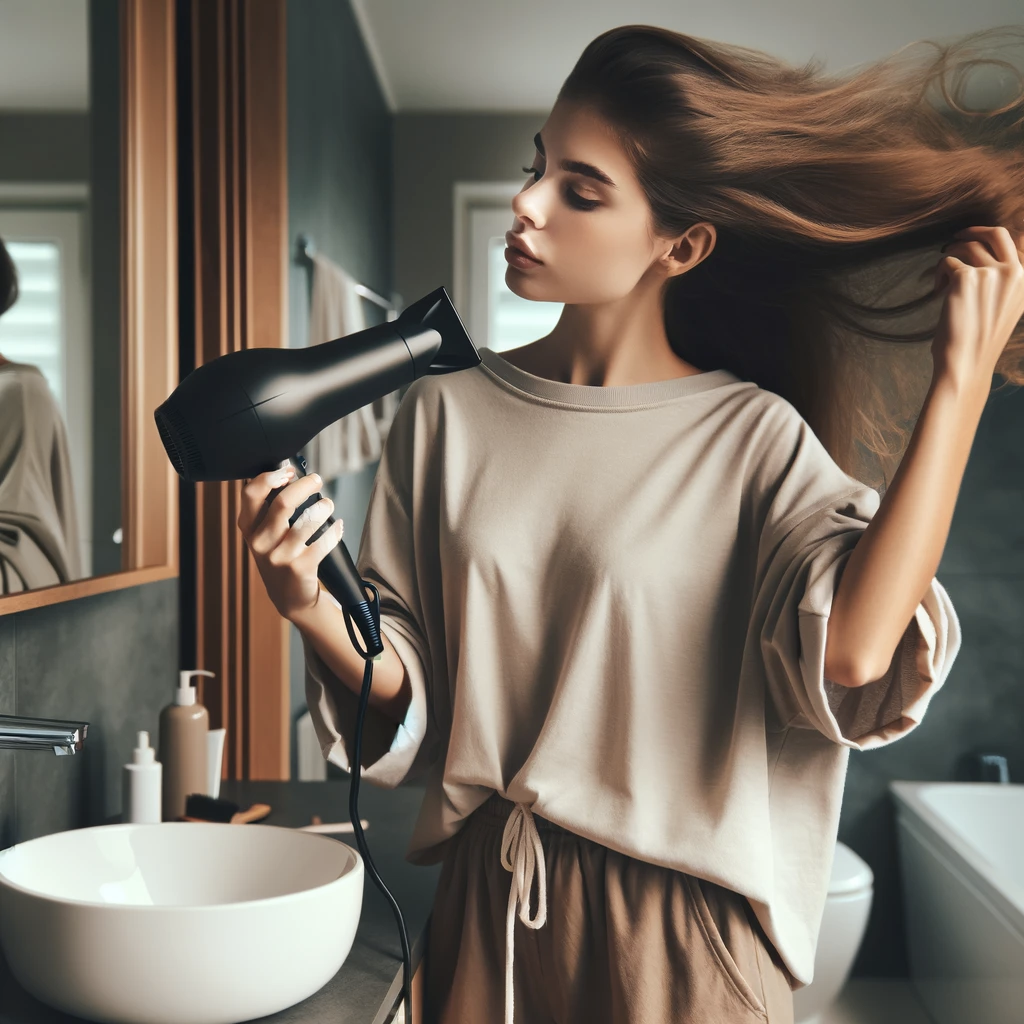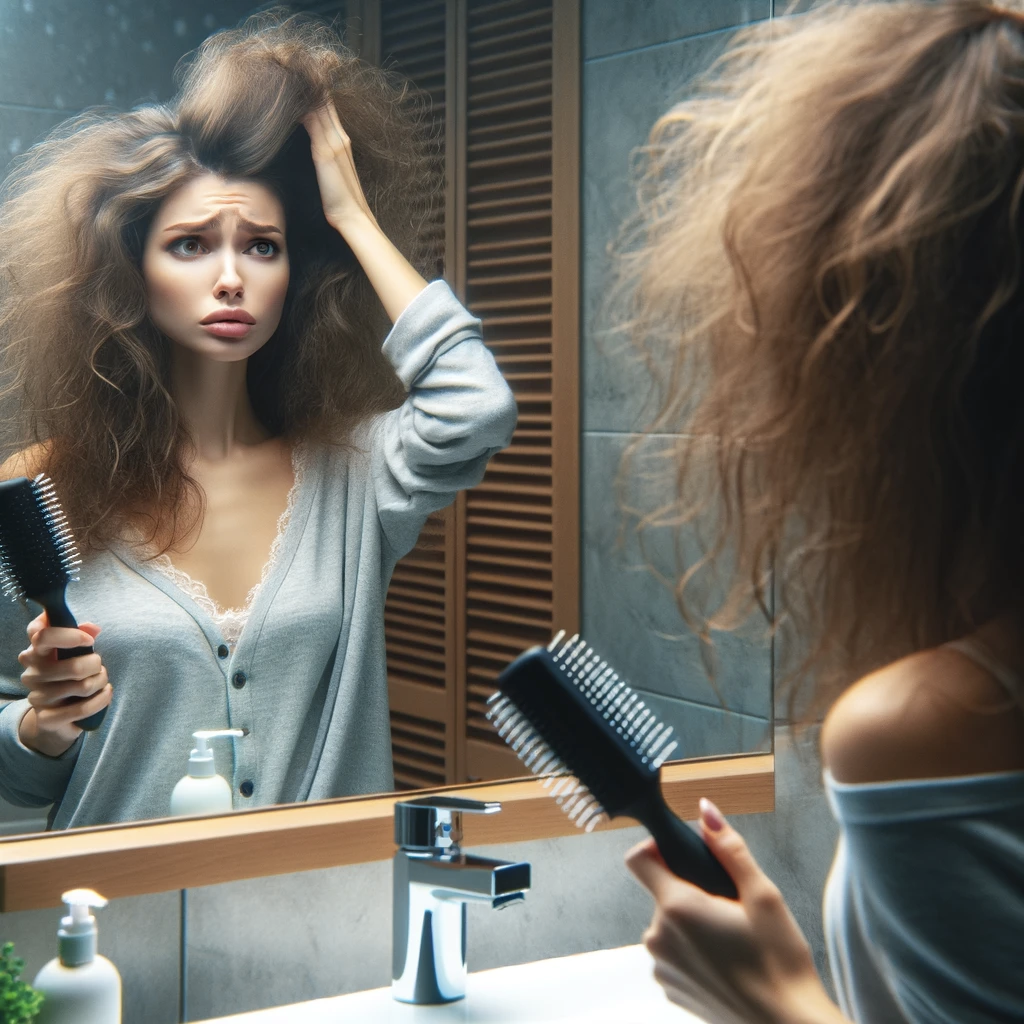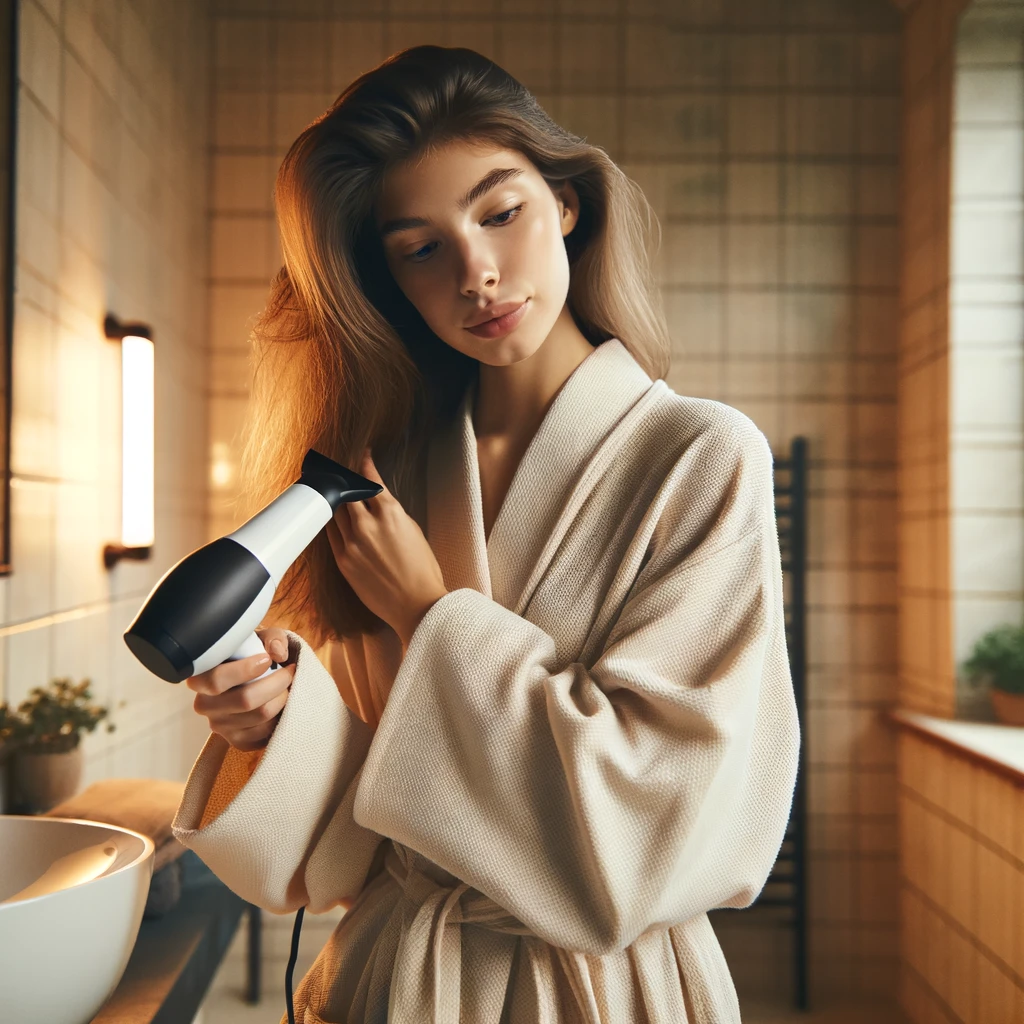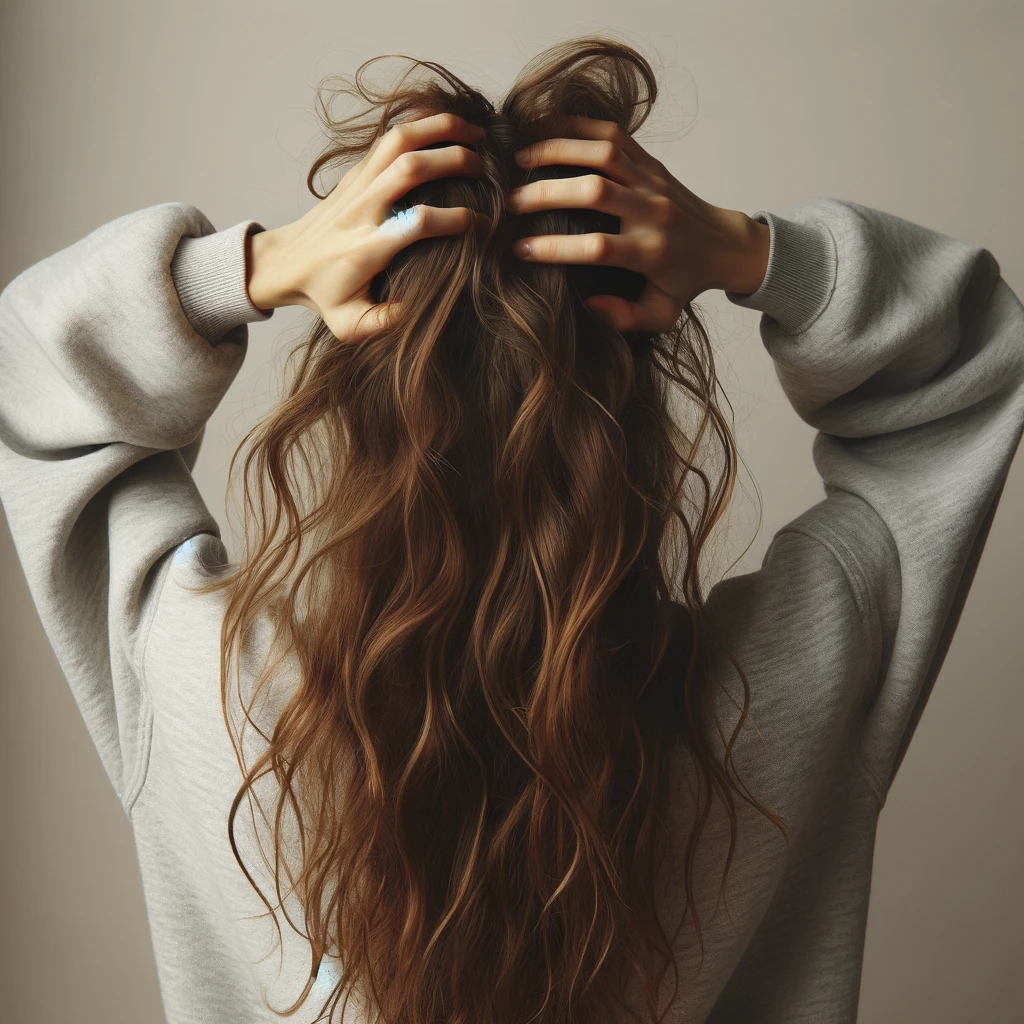Cómo arreglar el cabello seco: curarlo y prevenirlo

If you consistently find yourself asking “why is my hair so dry?” you are in the right place.
In this guide on dry hair treatment, we'll delve into the causes of dry hair, identify its signs, and offer practical solutions for restoration and prevention.
Why is My Hair So Dry?
Understanding why your hair turns dry is crucial for selecting the proper dry hair remedy. Let's explore the primary reasons behind dry hair:
Environmental Conditions:
Your hair's moisture can be significantly affected by your climate and your daily environment.
- Living in a dry, hot climate strips moisture from your hair.
- Regular exposure to sun and wind can lead to dryness.
- Swimming in chlorinated or salty water without proper hair protection.
Hair Care Practices:
How you treat your hair plays a significant role in its health.
- Washing your hair frequently can remove its natural oils, leaving it dry and brittle.
- Using harsh shampoos, conditioners, or styling products can strip hair of moisture.
- Using heat styling tools frequently can damage hair.
- Chemical treatments such as dyes, perms, and relaxers damage the hair cuticle.
Physical Health:
Certain health conditions can affect your hair's ability to retain moisture.
- Nutritional deficiencies, such as those caused by eating disorders like anorexia nervosa, can lead to dry and brittle hair.
- Hormonal imbalances, including those from hypothyroidism or hypoparathyroidism, impact hair health.
- Genetic conditions like Menkes syndrome can also cause dryness by affecting nutrient absorption.
Age and Hormonal Changes:
Your hair produces less oil as you age, which can lead to dryness. Hormonal changes, especially after menopause, can also affect hair texture and moisture levels.
Understanding the causes of dry hair is the first step in implementing effective treatments and healthier hair care practices.

Dry Hair Signs
Identifying dry hair is key to addressing its needs and finding the right treatments. Here are the signs to watch for, indicating your hair may be dry:
- Dullness: Healthy hair naturally shines due to the presence of oils that reflect light. Dry hair often looks dull because it does not retain enough moisture.
- Rough Texture: Run your fingers through your hair. If it feels rough or brittle, it's a sign that it's dry. Healthy hair should feel smooth and soft.
- Split Ends: Take a closer look at the ends of your hair. Split ends are a common symptom of dry hair resulting from weakened and brittle strands.
- Tangles: Dry hair is more prone to tangling, making it difficult to comb or brush without snagging.
- Frizziness: A halo of frizz is often a sign of dry hair. Lack of moisture can cause hair to swell and frizz.
- Breakage: If you notice more hair breakage than usual, it could be due to dryness weakening the hair shafts.
- Itchiness and Flakes: Dry scalps often accompany dry hair. An itchy scalp or visible dandruff flakes can indicate that your scalp and hair are not retaining enough moisture.
If you are experiencing dry hair symptoms that do not improve despite changes in your hair care routine, it may be time to seek assistance from a professional. Consulting a doctor can help identify any underlying causes of dry hair, such as nutritional deficiencies or hormonal imbalances.
They may ask about your hair care practices, diet, and additional symptoms to determine the best action, including specific treatments or tests to diagnose health conditions contributing to dry hair.
How to Fix Dry Hair?
Fixing dry hair is all about giving it the moisture it needs. Here's how to do it simply:
- Use the Right Products: Pick shampoos and conditioners made for dry hair. Our Luxe Hydrate & Repair Shampoo and Conditioner is a great choice to help your hair stay moisturized.
- Condition Every Wash: Always use a conditioner after shampooing to keep moisture locked in.
- Natural Oils: Coconut, jojoba or marula oil can work wonders. Use them as a treatment before you shampoo or as a little extra moisture after.
- Trim Ends: Cutting off split ends can stop further damage and keep your hair looking healthy.
- Cool Water Rinse: Hot water can dry out your hair. Finish your shower with cool water to help seal in moisture.
- Eat Right and Stay Hydrated: Drinking plenty of water and eating foods rich in vitamins and minerals can help your hair from the inside out.
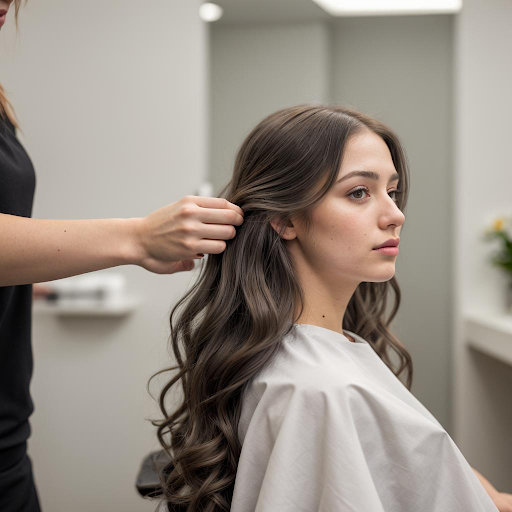
How to Prevent Dry Hair?
To fix dry hair, here's what you can do in simple steps:
- Wash Less Often: Shampooing your hair every day can strip it of its natural oils. Try to wash it just two or three times a week.
- Heat Protection: Always use a heat protectant spray before using any heat styling tools on your hair. This helps prevent heat damage and keeps your hair healthy and shiny.
- Deep Condition: It is recommended that you apply a deep conditioning treatment or hair mask weekly to keep your hair nourished and healthy. It's like a big drink of water for your hair.
- Regular Trims: Cutting off split ends every few months keeps your hair healthy and stops breakage.
- Avoid Harsh Chemicals: Avoid lots of dyeing or chemical treatments that can dry out your hair.
- Cover Up: Protect your hair from sun and wind with a hat, and wear a swim cap in the pool to keep out chlorine.
- Less Heat Styling: Try to cut down on blow drying, straightening, or curling your hair. When you do use these tools, don't forget the heat protectant.
- Choose Alcohol-Free styling products: Some styling products have alcohol, which can dry out your hair. Look for alcohol-free options.
These easy-to-follow tips can really help revive dry hair and make it healthier and shinier.
Final Thoughts
Managing dry hair is all about incorporating the proper practices and products into your hair care routine. Remember to protect your hair from heat and environmental damage.
Luxe Cosmetics' Hydrate Repair Conditioner & Repair Shampoo are crucial to revitalizing dry strands. These products are crafted to nourish and deeply promote healthier, more vibrant hair.
Related Articles

Josef Mohamed
Josef Mohamed is a Content Marketer and Web Designer with over 6 years of experience.He brings a wealth of knowledge to his work, making him a reliable source for readers interested in practical insights about beauty.His writing style is straightforward, aiming to provide real facts and avoid common myths in the beauty industry.

